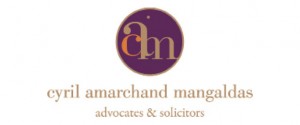A 3 July press release from the Telecom Regulatory Authority of India (TRAI) has brought into effect the Telecommunication (Broadcasting and Cable) Services Interconnection (Addressable Systems) Regulations, 2017, and the Telecommunication (Broadcasting and Cable) Services (Eighth) (Addressable Systems) Tariff Order, 2017, and requires service providers to comply with the provisions of the regulations and tariff order, which were notified on 3 March 2017. The press release follows a judgment delivered in favour of TRAI by Madras High Court (in Star India Private Limited and Anr v Department of Industrial Policy and Promotion and Ors), which upheld TRAI’s right to implement the regulations and tariff order.

Partner
Cyril Amarchand Mangaldas
The revised regulatory framework, which purports to curb discriminatory practices followed by broadcasters and distributors by setting out strict servicing and offering conditions, has been perceived as unreasonable and onerous by the service providers, who have opposed it from the time TRAI published a discussion paper seeking stakeholder comments, prior to notifying the regulations and tariff order. Writ petitions challenging them were filed before Madras High Court and Delhi High Court after the notification. Enforcement of the regulations and tariff order was stayed by an order from the Supreme Court, requiring that the status quo be maintained until Madras High Court delivered its final judgment.
The judgment confirms the dissenting opinion of the chief justice of Madras High Court in a split order of the same court and rules on the principal issues of: “(1) whether the impugned Regulations and the Tariff Order can exist and operate through the powers conferred to and under the TRAI Act, 1997; [and] (2) whether the impugned Regulations and the Tariff Order would impinge upon the provisions of the Copyright Act, 1957”, while dealing with contentions that the regulations and tariff order deal with “content” instead of “carriage”, thus impinging on the provisions of the Copyright Act.
You must be a
subscribersubscribersubscribersubscriber
to read this content, please
subscribesubscribesubscribesubscribe
today.
For group subscribers, please click here to access.
Interested in group subscription? Please contact us.
你需要登录去解锁本文内容。欢迎注册账号。如果想阅读月刊所有文章,欢迎成为我们的订阅会员成为我们的订阅会员。
Cyril Amarchand Mangaldas is India’s largest full-service law firm. Jaya Singhania, a partner at the firm, was assisted by Tarumoy Chaudhuri, a senior associate.
Peninsula Chambers,
Peninsula Corporate Park,
Lower Parel, Mumbai – 400 013 India
New Delhi | Bengaluru | Hyderabad |
Chennai | Ahmedabad
Contact details
Tel: +91 22 2496 4455
Fax: +91 22 2496 3666
Email: cam.mumbai@cyrilshroff.com



























